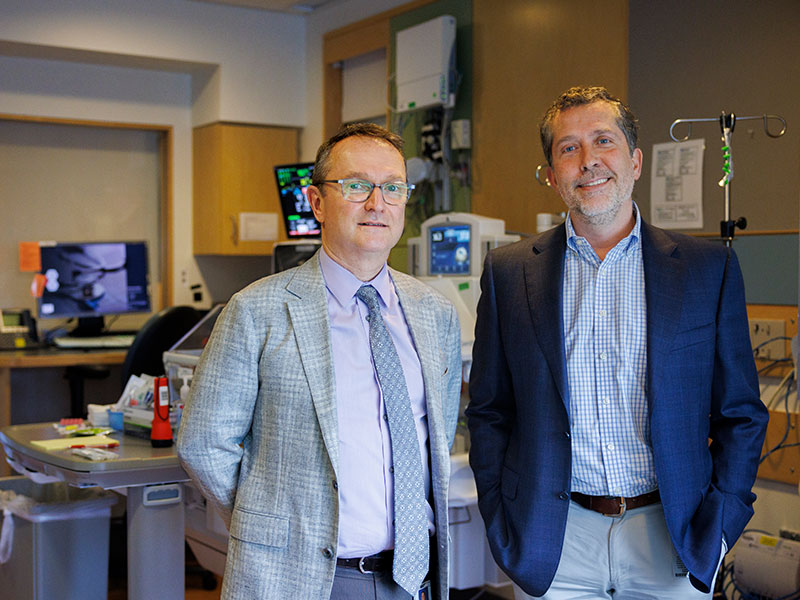News2 Minute ReadJun | 10 | 2024
Connect to Capacity: Newborn Medicine


“The goal, simply put, is the right baby, in the right place, at the right time,” says Paul Lerou, MD, chief, Newborn Medicine, Mass General for Children (MGfC).
Lerou and Sergei Roumiantsev, MD, PhD, associate chief, MGfC Division of Newborn Medicine have been working to improve capacity challenges since 2015. The issue becomes more apparent each year with 2023 as the most difficult, they say, due to flu, RSV and COVID hitting at the same time. The Division of Newborn Medicine provides care to nearly 10,000 newborns each year at Mass General, throughout Mass General Brigham and at out-of-network facilities. Central to this effort is its level four Neonatal Intensive Care Unit (NICU) for newborns, its rating means it can treat babies with the most serious medical and surgical conditions. There are 42 NICU beds and when they are full, patients must be diverted to other hospitals that can handle the complexity of the case. Babies, however, are not the only ones impacted.
“Often times, very high-risk pregnancies result in a child needing NICU care. If we think that scenario is a possibility, we work closely with Obstetrics and the Maternal Fetal Medicine service so if someone delivers here, we have the capacity to support the newborn,” says Lerou.

To address this situation, Roumiantsev – under Lerou’s leadership and in partnership with Brigham and Women’s Hospital Newborn Medicine unit and Boston MedFlight – worked to optimize neonatal bed capacity throughout the MGB system. Together, they developed and implemented a set of protocols for managing patient transfers – clear guidance for all MGB newborn units managing bed capacity. They also established a reporting mechanism for tracking and reviewing all admissions and transfers both accepted and denied, into and out of each network unit. The effort resulted in 40% more newborns receiving intensive care at MGH over the past eight years.
“Over that same timeframe, the number of neonatal transfers from community hospitals into MGH has doubled, and to accommodate this increase there has been an increase in transfers of stabilized newborns from MGH back to the community,” says Roumiantsev.
“The MGH neonatology program is a critical resource for MGB patients and for patients in community programs throughout Massachusetts, New Hampshire and Maine. If the MGH NICU exceeds capacity, we find potential patients a bed at an appropriate location within MGB or another network. It takes extensive teamwork and clear communication, but we always get it done,” says Lerou.
